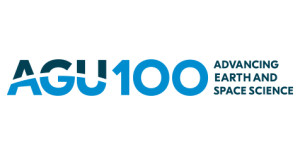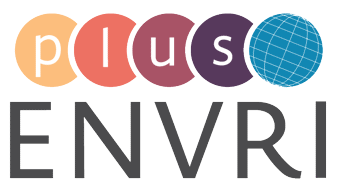Below you can find some of the sessions that are relevant to the ENVRI community. Contact us if you wish to promote other community-relevant sessions here.
IN042: Integrating Data and Services in the Earth, Space and Environmental Sciences across Community, National and International Boundaries
Submit an Abstract to this Session
The last decade has seen rapid growth in the number of online data sets and tools, many of which are coordinated by separate communities in the Earth, space, and environmental sciences. Notable efforts include GEO, ESGF, ESIP, EPOS, CUHASI, ENVRI, AuScope, EDI, EarthCube, OneGeology, ODIP, IGSN and DataOne. There are common technological and science challenges that each is trying solve in isolation. Although standards, vocabularies, formats, etc are cohesive within each community, there are sufficient differences that make it hard to integrate data across them. The time is ripe to synchronise efforts to create globally connected networks of Earth, Space and Environmental Science data, information systems, software and researchers.Papers are solicited from those building community specific systems or from those trying to resolve the challenges of internationally linking multiple communities to create networked environments for developing common global solutions for more efficient and effective use of limited, available funding.
A088: Recent and Anticipated Measurement Campaigns: Foci, Results, and Opportunities for Analysis and Collaboration
Submit an Abstract to this Session
This session is a forum to present recent, ongoing, and future atmospheric datasets. It is meant to promote sharing of results and to initiate collaborations across institutions, national agencies, and international groups on analysis and synergistic observations. Welcome are submissions focused on: mission overviews; highlighted results; reanalyses; and even campaigns in the proposal stage. All manner of data-collection activities are relevant, including intensive airborne, shipborne, and land-based field campaigns, data coming from experimental facilities, permanent and/or long-term measurement networks/infrastructure, and covering both in-situ and remote efforts including space-based activities. Abstracts concerning international efforts among countries are welcome; especially encouraged are those focused on datasets with open sharing policies.
IN027: Diversities of Online Collaborative Virtual Research Environments Available to Support the Earth, Space and Environmental Sciences
Virtual Research Environments (VREs) (aka Virtual Laboratories and Science Gateways) support online collaborative research across all areas of the Earth, space and environmental sciences. VRE communities range from small groups of investigators to large international initiatives: they can simply be sharing data or facilitating complex processing workflows on HPC. VREs vary from rigid workflows to highly flexible environments that enable discovery, sharing, and publishing of data and other associated products. Some VREs include software solution ‘centres’ that facilitate access to a variety of web-based applications, which deliver the capability to analyse data and execute models. Increasingly Jupyter notebooks are becoming commonplace in VREs, providing flexible environments to more easily prototype and share scientific software applications, and deploy on cloud, HPC and data-intensive infrastructures.
This session solicits papers from those developing VREs and similar collaborative platforms, including technologies used; methods of sharing developments; recognized challenges; and future visions for their evolution.
ED060: Virtual Community Platforms and Tools for FAIR Data Management Planning: Supporting Your Research and Training the Next Generation
Submit an Abstract to this Session
Currently, data management plan (DMP) usage is mostly limited to research proposals. Clear training, easy-to-access and use tools, and consistent policies are needed to help scientists develop DMPs and manage data more broadly and across multiple phases of scientific projects. In an effort to train current and future generations of scientists, virtual community platforms and training resources are being developed to provide services and support to ensure that DMPs are embedded in the scientific research lifecycle. Well-developed, executable, and machine-actionable DMPs can ultimately assist data to be Findable, Accessible, Interoperable, and Reusable (FAIR). We encourage submissions, especially case studies, describing training, policies, infrastructural activities, tools and platforms that leverage and help fulfill DMPs and that enable the scientific community to make their data FAIR.



